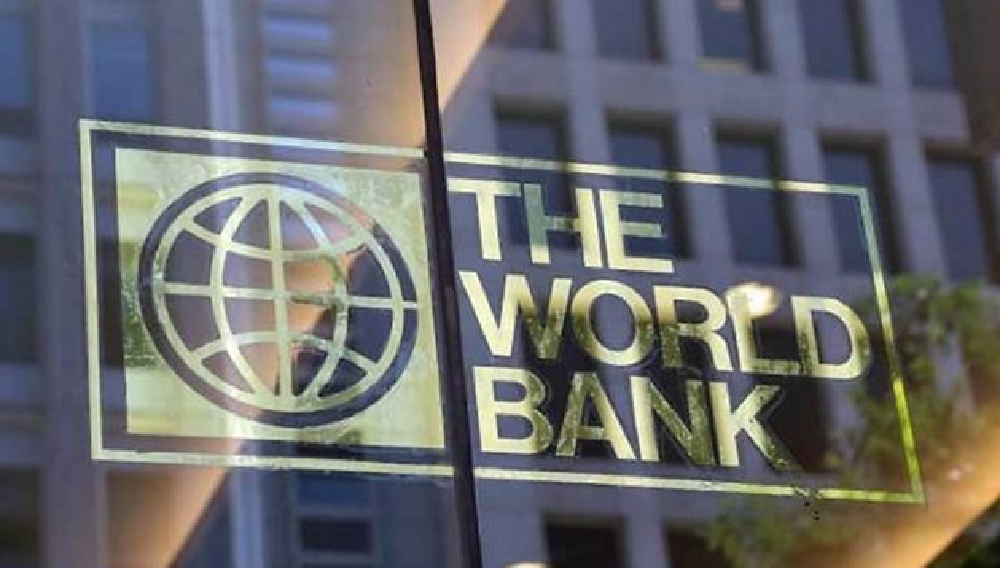The International Monetary Fund (IMF) has issued a strongly-recommended recommendation to Pakistan to revoke the exemption from sales tax on pesticides, fertilizers and tractors. The IMF also recommends that Pakistan continue General Sales Tax (GST) Harmonization and and implement personal Income Tax (PIT) changes in the budget (2022-23) including a decrease to the total number of tax rates and tax brackets for income; reduction in tax credits and allowances, as well as special tax procedures for small-sized taxpayers.
MUST WATCH: Mobile gaming market has really taken its toll
The issue was mentioned within the IMF staff report 2021 on Article IV Consultation as well as the Sixth Review that was published on Saturday.
The report indicated that Pakistani authorities are currently in the process of creating PIT legislation before the end of February 2022, to ensure that it is fully operational on July 1st 2022. This will be in conjunction with fiscal year 2023’s budget. The PIT reforms will result in approximately 0.3 percent revenues in FY 2024. In the hope of reducing complexity as well as increasing progressivity and facilitating formalization of labor and formalization, the reforms will:
- Reduce both the number of rates as well as the lower the rate of income tax
brackets; - Reduce taxes and tax allowances (except those for disabled or elderly people, as well as Zkat-related receipts);
- create tax rules that are tailored to tiny taxpayers.
- In addition, it will allow additional taxpayers to join in the tax system. The low-income households will be safe as the tax reform keeps that current PIT threshold (almost three times the income per person).
The IMF has also recommended that tax authorities implement efficient revenue measures to simplify the tax system. The report emphasized that risks of implementation are significant in particular when tax buoyancy decreases when there is a slowing in imports. In this case, experts would suggest the possibility of bringing forward plans to increase the exemptions that are removed to include tractors and fertilizers, which account for 23 percent of the total GST tax expenditures . Their removal is being considered as a budgetary measure for 2023.
The tax reforms that will be essential to be implemented in the near future will assist Pakistan tackle its perennial issue of a low base of revenue that weighs on the sustainability of debt and severely limits the fiscal space needed to invest in healthcare, infrastructure, education and social assistance. With this in mind, the team advised the authorities to keep expanding their tax bases, decreasing informality, as well as making the system more efficient and contemporary.
MUST WATCH:PCB announces revised schedule of Australia tour 2022 to Pakistan
Harmonizing the GST base harmonization is essential to boost efficiency and business conditions. The current system is the tax base for sales is split, with goods subject to provincial taxation as well as items taxed by the federal government. This fragmentation has affected tax policy and administration. It has also led to differences over the definition of tax base and crediting, which led to double taxation and cascading for businesses, and substantially added the cost of compliance. In reality, the tax system is a burden and hinders competition by increasing the costs to conduct business.
The authorities are aware the need for tax administration reforms as well as enforcement efforts must be complemented by their tax policy initiatives. With the help of sources like the IMF as well as the World Bank, the authorities are planning over the long time to:
- establish a centralized process for risk-based compliance;
- Update IT and automation and automate;
- make use of third-party data, cross-checks and data analysis
- make registration and filing easier;
- Modernize and enhance audit methods and
- The large tax bureau (LTO).
In accordance with the current IMF technical assistance guidelines IMF staff discouraged the use third-party audits and instead recommended creating a proper framework for risk management and compliance. Also, efforts will be made to create a single tax filing, taxpayer and return portal. This will also help to redress outstanding tax arrears.
To prevent smuggling from occurring, the authorities are working on returning to the track-and-trace system used for tobacco products, however the full roll-out is still in doubt due to capacity limitations. The report also highlighted that tax revenues are anticipated to grow by 1.2 percent of GDP in FY 2021. This is boosted by
- Revenue measures;
- strengthened tax administration efforts and
- automatic stabilizers.
The most significant tax-related measures include implementing an overhaul of General Sales Taxes (GST). Parliament is expected to approve GST reforms in the budget supplementary as per the staff’s recommendations (PA) to expand GST tax base. GST tax base as well as to eliminate approximately 2/3 of the taxes incurred on GST.
This is accomplished by reversing the policy changes that gave preference to certain items under the Fiscal Act of FY 2022 by transferring most goods from the zero-rating (Fifth Schedule) or reduced rates (Eighth Schedule) to the normal sales tax rate by removing exclusions (Sixth Schedule) for most products, excluding food items and live animals to be consumed by humans, and educational and health-related products as well as using the normal rate for high-end mobile phones (previously covered under the ninth Schedule).
Must Read: Here Are The New Taxes on Mobile Phones in Pakistan
Authorities from Pakistan have informed the IMF that Pakistani authorities have told to the IMF they believe that their General Sales Tax (GST) change is projected to produce 0.5 percentage of the GDP by the fiscal year 2022 (0.8 percent of GDP annually). In addition, it reverses a number of policy changes that are contained by the FY 2022 Finance Act and as well:
- Eliminates most goods that are zero-rated (Fifth Schedule) and reclassifies them to the sales tax standard rate.
- Removes reduced rates from the Eighth Schedule and brings most of the items to standard sales tax rate
- Eliminates exclusions (Sixth Schedule) which exclude a tiny subset of items (i.e. the basic food item and drugs or live animals that are intended for human consumption education, health-related products) and brings all other items to the standard rate.
- Removes the Ninth Schedule to replace a specific tax rate applicable to cell phones by the standard rate that is only available in the fully built device (CBU) condition, with an estimated price of $200 or more.
- The increase in the GST at the point for sales (POS) GST rate to the normal rate.
The households with low incomes are shielded from the majority of the effects of the tax reform since a number of important items will be tax-free, such as:
- essential food products;
- the sales of informal markets and small retailers;
- Food consumption from home production. Overall, 60% of tax-related expenditures were eliminated. But we need additional time to develop an equitable subsidy program that replaces tax expenditures for fertilizers, pesticides, as well as tractor, which currently account 22 percent of all tax expenditures. This will be implemented during the FY2023 budget, following discussions with the Fertilizer Commission constituted by the Government.
The process of harmonizing service sales tax across all provinces supported by the World Bank, was launched in September 2021, with the decision to establish common definitions of items and services that are shared between provinces and FBR as the first step in decreasing the fragmentation of taxes on sales as well as increasing your tax base.


